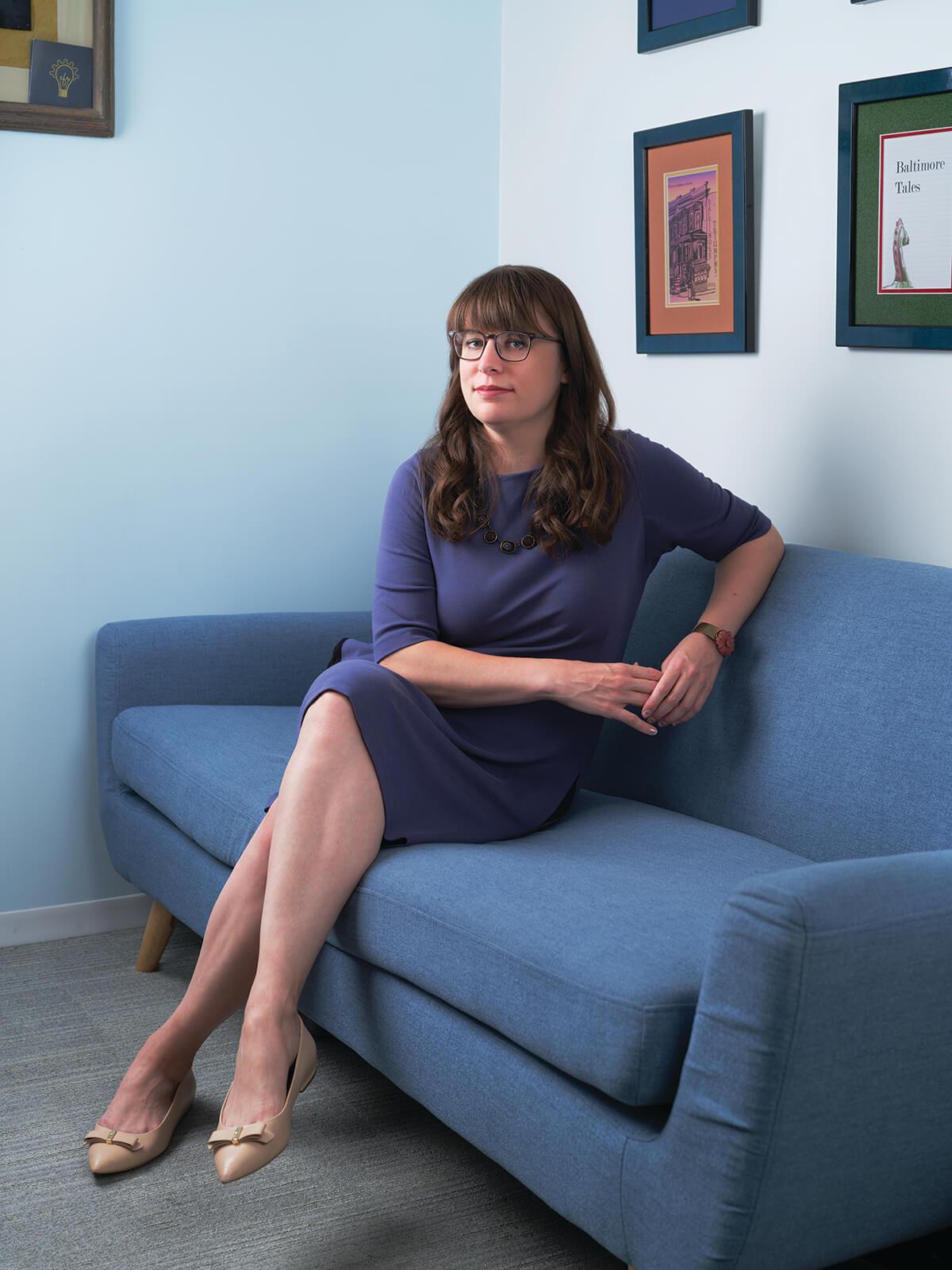GameChangers
Patrice Hutton Helps Baltimore Students Express Themselves Through Creative Writing
Hutton founded Writers in Baltimore Schools, an in-class program that has expanded to offer writers’ workshops, mini retreats, and a summer camp.

When Patrice Hutton, 37, was a student in the Writing Seminars at Johns Hopkins University, part of the program included teaching creative writing at various middle and elementary schools near the Homewood campus. As she traveled between schools, she noticed a real disparity between what was being taught at the more privileged Roland Park Elementary/Middle School and the under-financed Barclay School just a few blocks away.
She also noticed that schools in general were moving away from creative writing as they were forced to keep up with the No Child Left Behind Act, which emphasizes core curriculum subjects like math and science over the arts. Given that writing had provided such a strong outlet in her own life, she decided to take matters into her own hands.
In 2008, thanks largely to a grant from Open Society Institute–Baltimore, she created Writers in Baltimore Schools (WBS), an in-class program where students can express themselves through creative writing, from fiction to poetry to nonfiction. The program, which reaches approximately 140 students a year, has expanded over the years, and now includes writers’ workshops, mini retreats, and “write-ins,” as well as a summer camp.
The students also create zines, anthologies, and share some of their poetry on the back page of indie newspaper, the Baltimore Beat. We sat down with Hutton to discuss what she’s built.
Why do you think writing is so important for young people, particularly young people from underserved communities?
I think teaching students that their voice matters, that what they have to say is important, and that they can use their voice to advocate for themselves in their community is a building block of all other things. Something we talked about a lot in the beginning was, how can we use Writers in Baltimore Schools to teach students to access systems? Because, for more privileged, more resourced kids, it’s like, of course, you know you can email your college counselor or professor. But when you grow up as one of 38 kids in a Baltimore City school class, you’re just not used to being able to have that kind of access. We want kids to know that they can ask grown-ups for stuff and use their voices to speak up.
So much of WBS is allowing kids to see themselves as creators, as artists.
Yeah. And something we do is have the students write an Artist’s Statement. And that’s based on some research we read, which said that in low income school settings, if you give kids a chance to sort of affirm that they are artists, they are going to see themselves as artists [going forward]. Creative writing classes are notoriously emotionally fraught.
Are the students encouraged to critique each other?
In terms of peer editing and peer feedback, we build it gently. Different teachers use different terms like “glows and grows” or “compliment sandwiches,” that is, pointing out ways that your piece shines first and then ways to, you know, improve it. So in that case, they’re learning social skills as well as these writing skills.
Some of these kids are dealing with trauma at home and in their neighborhoods. How have you seen that manifest in the work?
You sort of get kids across the spectrum—kids who want to use writing as an outlet and kids who want it as an escape. And something we’ve been thoughtful about is making sure that each lesson can be approached from both angles, because we never want to force a kid to write about their trauma, but we do want to give them the space for that. For some kids, existing in that fantasy world, that’s what they want to be doing. In some cases, very intense things have come up, where I’m glad that we have this safe space. But if something really concerning comes up, we’ll elevate it to the classroom teacher because they know the kid better than we do.
Tell us about the sleepaway camp.
It started in 2012. It’s now held at Washington College in Chestertown. It’s really nice. The kids are getting that real college experience and the parents are often very sweetly grateful for that. But the kids, I mean, their reactions are the things that sustain me in the moments of work exhaustion, because I’ll think back to a kid who would say, “This is the best week.” Or, when we ask the kids, “What would you change about this?” they want it to change from one to two weeks, which we will hopefully do someday. One quote from a student that we use a lot [in promotional material] is, “At this camp I found my forever family.”
Can you share some of the Writers in Baltimore Schools success stories?
One of our alums, Bryonna Reed, graduated from Davidson College in the spring of 2020 and now she’s the new development director of the Baltimore Abortion Fund. Another one, Jamesha Caldwell, just finished her first year of law school at Penn State Dickinson. This girl got like 10 law school acceptances and this summer she’s interning for Congresswoman Jasmine Crockett on Capitol Hill. We have another kid, one from the very first workshop, who has become really big in the Baltimore drag scene. He’s performing all over. We have alumni doing some really cool stuff.